Hi, it's your resident art journalist here, letting you in on a secret about art history: it's even dirtier than you remember. Before NSFW was an acronym thrown about on the Interwebs, artists like Édouard Manet and Katsushika Hokusai were bringing sexy to the canvas. Visions of Venus and sensual octopuses are probably filling your memory now -- yes, your art history classes were more exciting than you first thought.
In celebration of the wildly erotic tendencies of artists over the centuries, we've rounded up some of the most jaw-droppingly sexy artworks, ones that you might have forgotten about since your sophomore-year stint in a Renaissance art survey course. Behold, the classic works that are just so much naughtier than Sister Wendy led us to believe.
Obligatory warning: Art history suffers from a well known disorder known as DWEM syndrome. That is, Dead White European Males dominate the archives, and as a result, nude women are usually the subject of historical erotic art. If, after reading this list, you need a fresher take on erotic art, check out the Leopold Museum's aptly titled exhibition "Nude Men" and the Leslie Lohman Museum of Gay and Lesbian Art's show on homoerotic artist Sasha Schneider.
1. Francisco de Goya's "The Nude Maja"
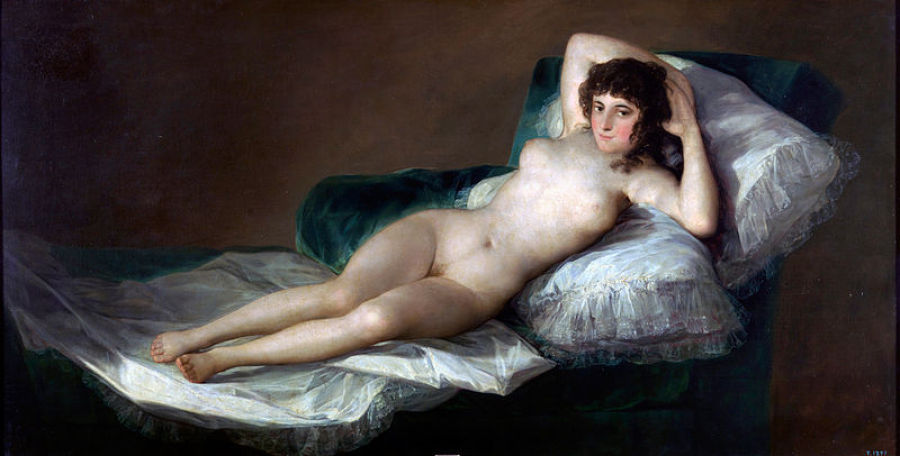
This circa-1800 painting will go down in history as "the first totally profane life-size female nude in Western art" -- thought to be at least one of the first explicit depictions of female pubic hair. At the time of its creation, the Catholic Church banned the display of artistic nudes, so Goya's nude woman and its more modest counterpart, The Clothed Maja, were never exhibited publicly during the artist's lifetime.
2. Katsushika Hokusai's "The Dream of the Fisherman's Wife"
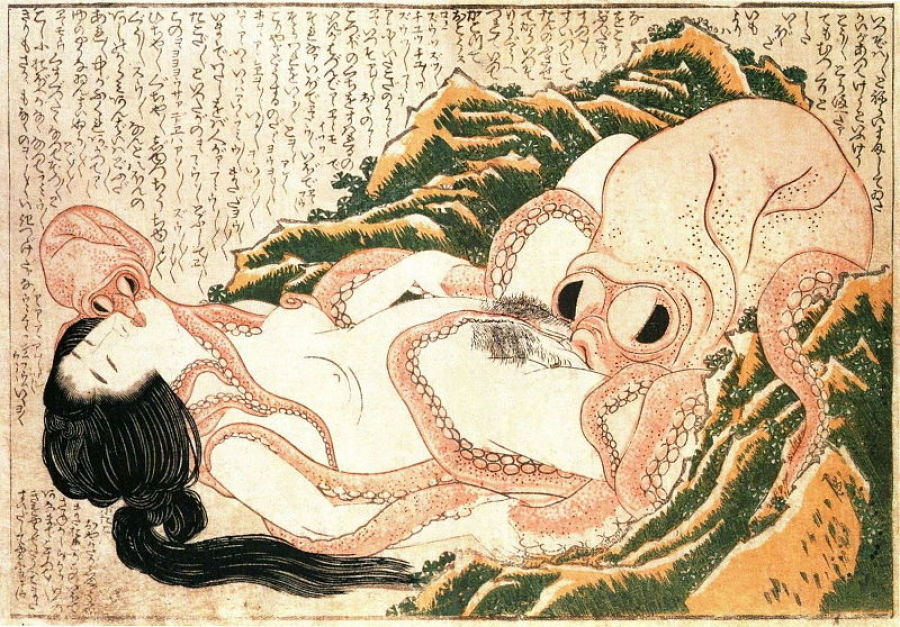
There's almost no ambiguity regarding the erotic nature of this painting. The print -- a perfect example of Japanese Shunga -- depicts a fisherman's wife deriving pleasure from a rather unique encounter with an octopus. But do you recognize the artist's name? Yes, the man behind "The Great Wave off Kanagawa" had more than landscape likenesses up his sleeve.
3. Hieronymus Bosch's "The Garden of Earthly Delights"
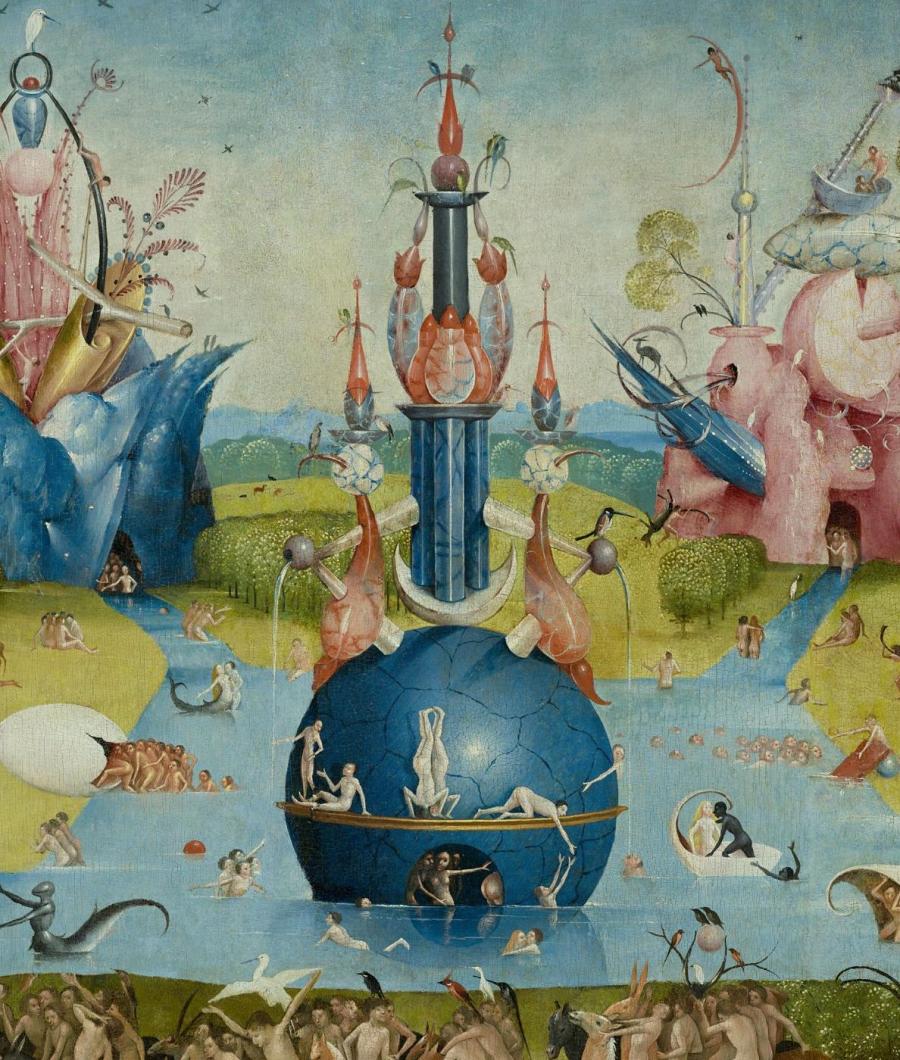
Ok, so you may associate "The Garden of Earthly Delights" with an array of terrifying, otherworldly creatures, but the painting has its fair share of sensual details too. Dating from between 1490 and 1510, the work plays host to a whole carnival of sins, in which nude men and women are seen frolicking with each other, horses, birds, mermaids, plants ... you name it. Writer Laurinda S. Dixon described it as teeming with "a certain adolescent sexual curiosity."
4. Paul Cezanne's "Seven Bathers"
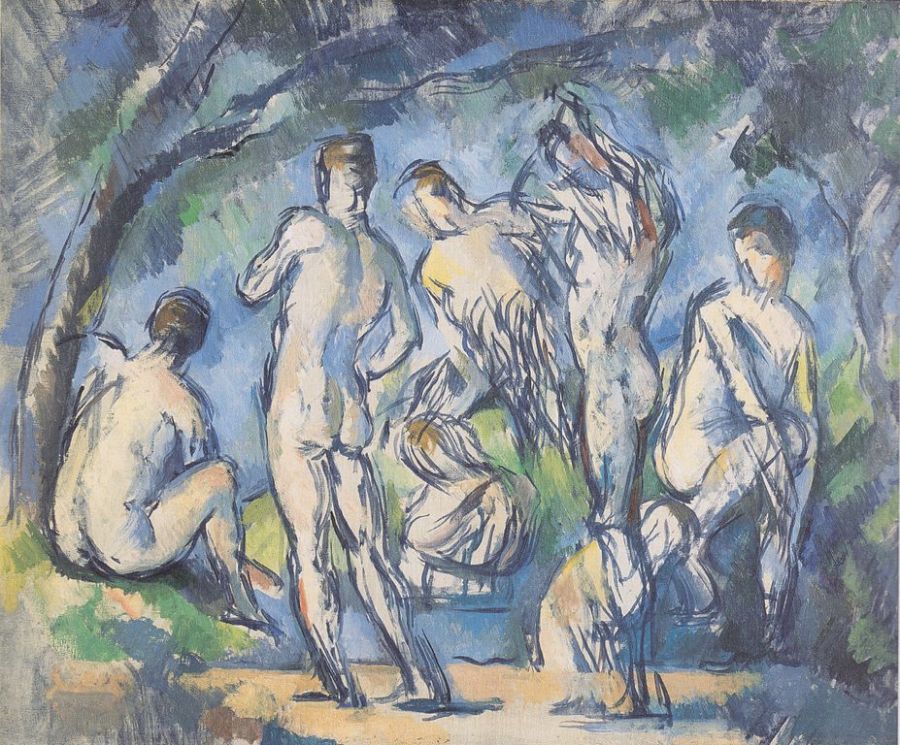
Cezanne is well known for his various images of nude bathers, many of whom were women. "Seven Bathers," however, portrays the figures of nude men -- though some are rather androgynously rendered. This scene of beautifully crafted male bodies is surely not the most erotic of subject matter, but the ways in which the artist toyed with classical representations of the body and the relationship between the viewer's gaze and nakedness makes for a borderline erotic aesthetic. It is assumed that Cezanne, due to a lack of available models, painted this from memory or imagination.
5. Titian's "Venus of Urbino"
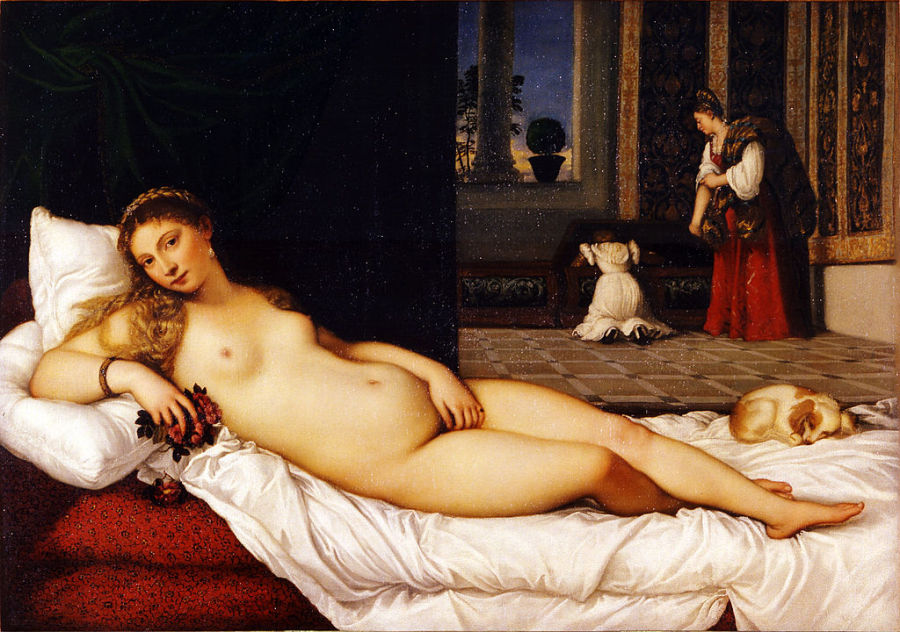
Mark Twain once called Titian's Venus "the foulest, the vilest, the obscenest picture the world possesses." With her unabashed nudity and unflinching gaze, the nude female in this 1538 work of art is undeniably erotic.
6. Gustav Klimt's "Frau bei der Selbstbefriedigung"

Klimt, the Austrian symbolist painter with a penchant for gilded canvases, brought you uber-famous works like "The Kiss" and his portrait of Adele Bloch-Bauer I. While those images, not to mention the many nude figures that populate his other paintings, exude sensuality, there's nothing quite as erotic as "Frau bei der Selbstbefriedigung."
7. Peter Paul Rubens's copy of Michelangelo's "Leda and the Swan"

For early 17th century audiences, it was likely more acceptable for a woman to be shown engaging in explicit acts with a bird than with an actual human being. Hence, "Leda and the Swan," based on the Greek myth in which Zeus takes the form of a swan and "seduces" a woman named Leda. Artists like Cesare da Sesto and Paul Cezanne also chose the crude story as inspiration for paintings.
8. Miyagawa Isshō's "Spring Pastimes"

Created in 1750, this Shunga scroll depicts a tryst between two men, one likely a samurai and the other a kabuki actor taking on a sexualized female role.
9. Édouard Manet's "Olympia"
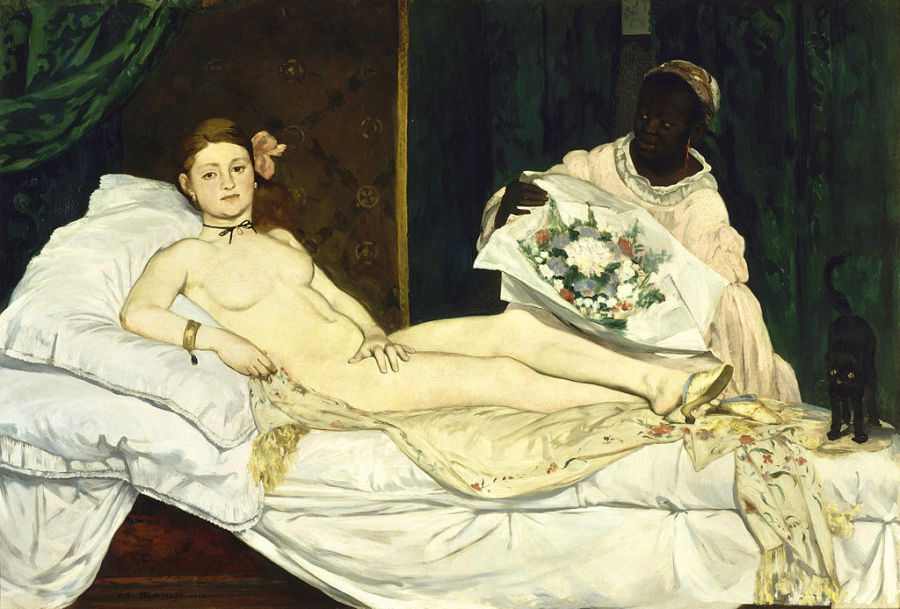
Look familiar? Manet's 1863 painting is based roughly on Titian's "Venus" and Goya's "Nude Maja." According to accounts from writer Antonin Proust, the painting of a prostitute was so scandalous that "only the precautions taken by the administration prevented the painting being punctured and torn" at its debut exhibition.
10. Jean-Honoré Fragonard's "The Swing"
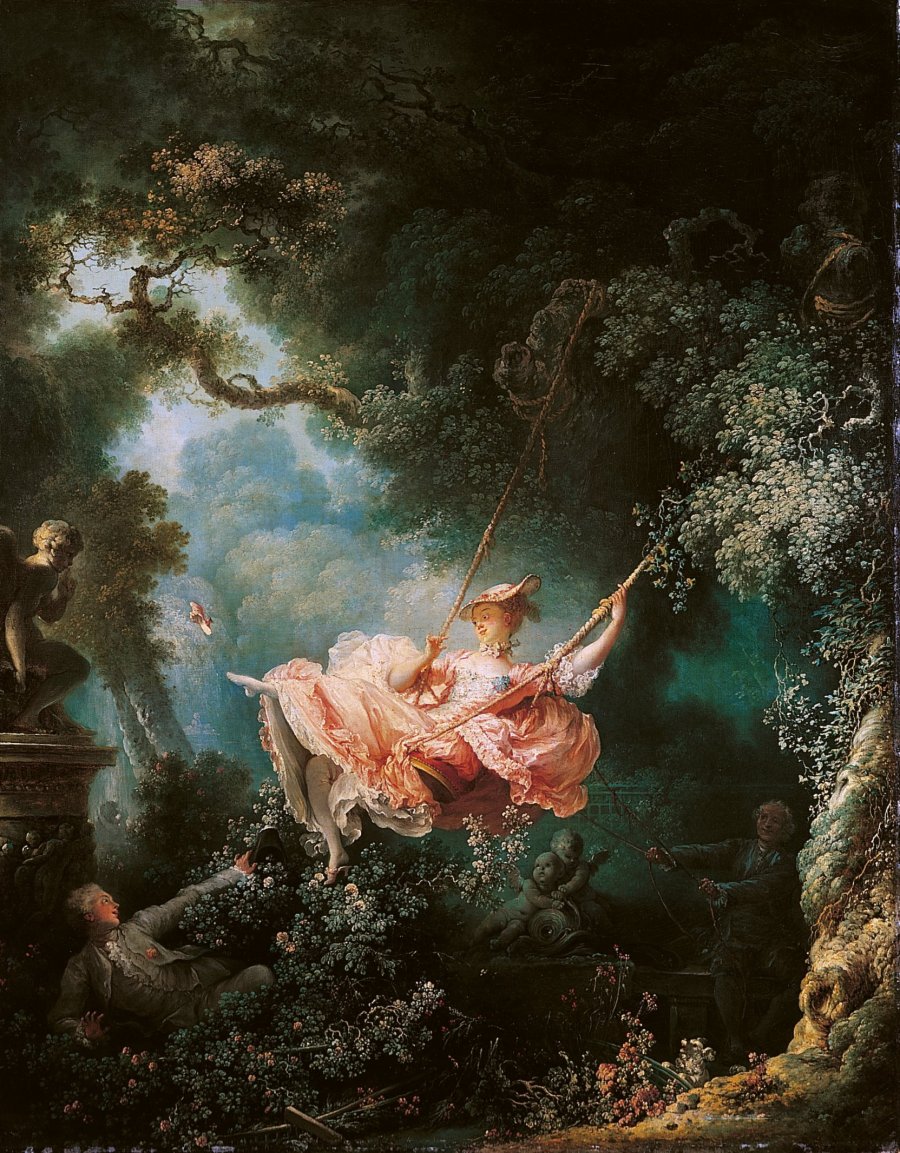
This Rococo masterpiece from 1767 is full of symbolism, all of which centers on a young woman's extramarital affair. See that man hidden in the bushes on the left side of the canvas? He's not only on the receiving end of that kicked-off shoe, he's also getting quite a peek up the woman's dress. Erotic? Maybe. We'd settle for 18th-century creepy.
11. Pablo Picasso's "Les Demoiselles d'Avignon (The Young Ladies of Avignon)"
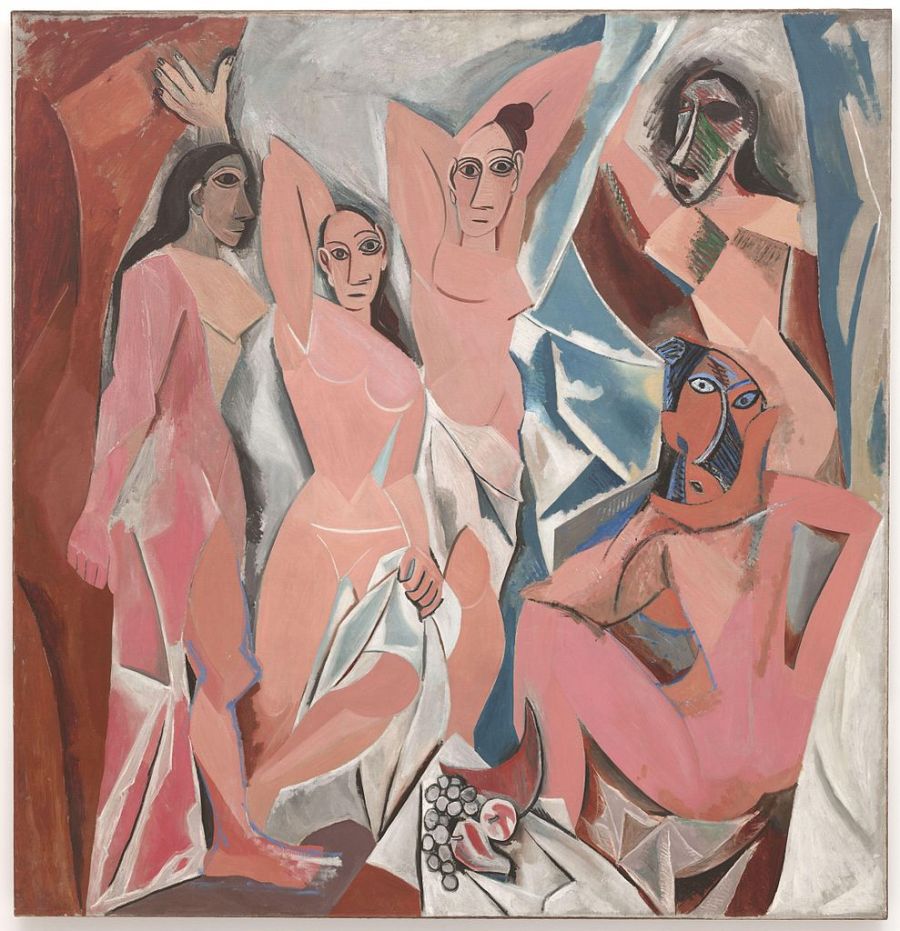
Picasso's famous Primitivist painting portrays five nude prostitutes allegedly from a brothel in Barcelona. With their unconventional female forms and relentless gazes, the image is a proto-Cubist version of erotica.
12. Egon Schiele's "Friendship"

Despite the title, there's a not-so-hidden sense of sexuality in Schiele's depiction of two naked individuals, embracing in a twist of line and form indicative of the great Austrian painter's intense figuration.
13. Diego Velázquez's "Rokeby Venus"

Call it "The Toilet of Venus," "Venus at her Mirror," "Venus and Cupid," or "La Venus del Espejo," Velázquez's nude painting shows a woman deriving pleasure from the site of her own naked self. For a painting made between 1647 and 1651 -- a time period marked by the Spanish public's disdain for naked bodies in art -- the work was on the salacious side. (In case you were wondering, Titian and Rubens also made their own versions of Venus at a mirror.)
14. Gustave Courbet's "L'Origine du monde (The Origin of the World)"
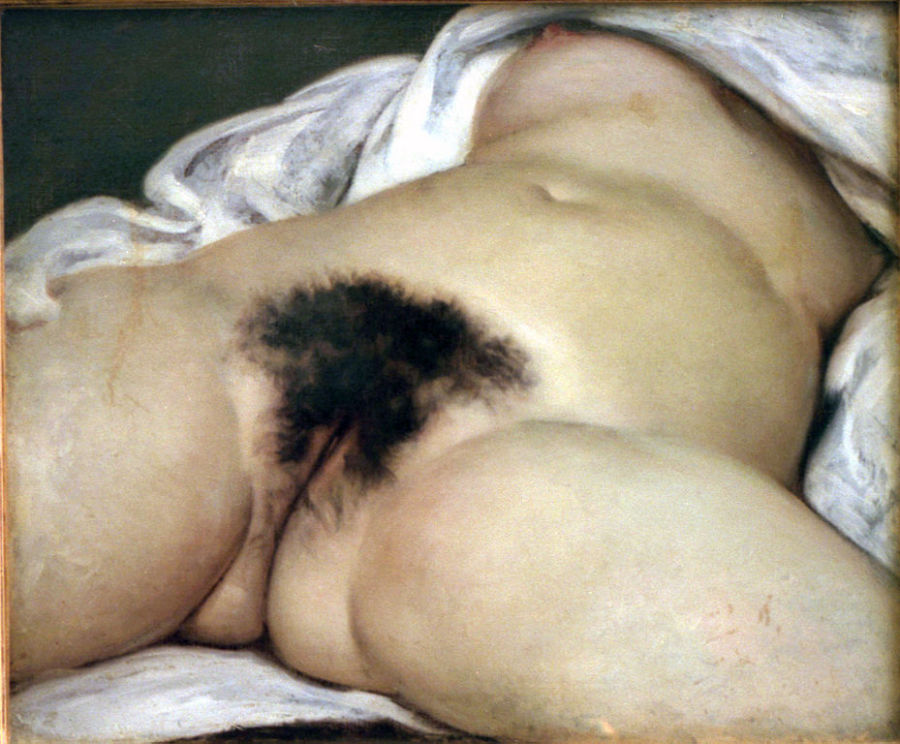
Need we say more?
BONUS: Meret Oppenheim's "Object"

Critics describe Oppenheim's "the lunch, in fur" as erotic, sensual and suffused with female sexuality, evoking the "physical sensation of wet fur filling the mouth." To the laymen, it's a cup, saucer and spoon covered in fur. What do you think?
A version of this post was originally published last year.
